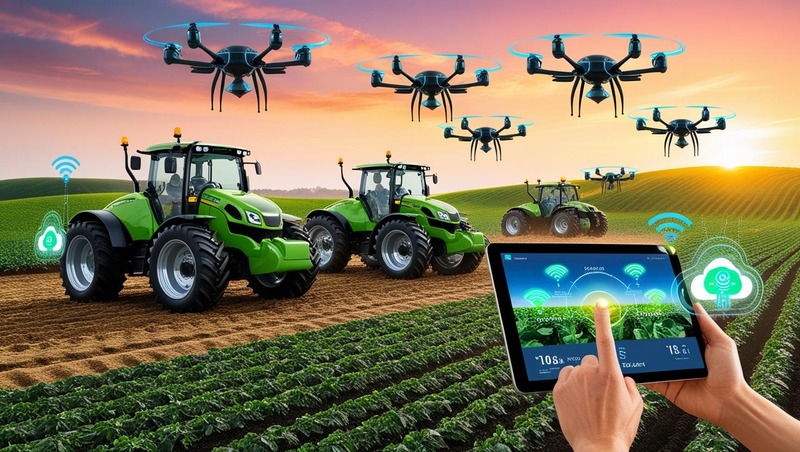The precision agriculture industry is undergoing a transformative shift, driven by advancements in technology, changing climate patterns, and the growing global demand for sustainable farming. As the agricultural sector strives to maximize productivity while minimizing environmental impact, several key trends are emerging that will shape its future.
One of the most influential trends is the integration of artificial intelligence and machine learning in farming operations. These technologies are enabling real-time decision-making by analyzing vast amounts of data collected from various sources such as sensors, drones, and satellites. AI-powered platforms can predict weather patterns, pest outbreaks, and optimal planting schedules, helping farmers make data-driven decisions that improve yield and efficiency.
Download PDF Brochure @ https://www.marketsandmarkets.com/pdfdownloadNew.asp?id=1243

Another significant trend is the widespread adoption of Internet of Things (IoT) devices in agriculture. Smart sensors and connected equipment allow farmers to monitor soil moisture, nutrient levels, crop health, and machinery performance remotely. This connectivity not only enhances farm management but also reduces resource wastage and increases sustainability.
Satellite imagery and remote sensing technologies are also becoming increasingly vital. These tools provide high-resolution insights into field conditions, allowing for precise mapping, crop monitoring, and early detection of issues such as disease or water stress. With enhanced spatial and temporal resolution, farmers can respond proactively and optimize inputs across their fields.
Automation and robotics are revolutionizing how farming tasks are performed. From autonomous tractors and robotic planters to drones for spraying and surveillance, these innovations are reducing labor dependency and improving the accuracy of operations. Automation ensures consistency in farming practices and allows for 24/7 productivity, particularly beneficial in large-scale commercial agriculture.
The use of big data analytics is another trend reshaping the precision agriculture landscape. The ability to collect and analyze large datasets from various farm activities enables more precise forecasting and benchmarking. This empowers farmers to identify trends, measure performance, and implement targeted interventions to enhance crop output and profitability.
Sustainable farming practices are gaining prominence in response to environmental concerns and regulatory pressures. Precision agriculture supports this trend by enabling precise input application, reducing chemical runoff, and conserving water. Technologies such as variable rate application and precision irrigation are helping farmers achieve greater sustainability without compromising yields.
Cloud-based farm management platforms are streamlining data access and collaboration across agricultural operations. These platforms allow stakeholders to share information in real-time, improving communication between farmers, agronomists, suppliers, and customers. The integration of cloud services enhances transparency, traceability, and overall decision-making efficiency.
Another emerging trend is the focus on climate-resilient agriculture. As climate change poses growing threats to crop productivity, precision tools are being used to model risk scenarios, optimize planting calendars, and develop adaptive farming strategies. These technologies play a crucial role in helping farmers mitigate climate-related risks and ensure food security.
Gene editing and biotechnology are also influencing precision agriculture by developing crops that are more resistant to pests, diseases, and environmental stresses. Combined with precision tools, these advances allow for the cultivation of high-performing crops tailored to specific regional conditions and market demands.
Finally, the increased investment and collaboration in agri-tech startups are accelerating innovation across the precision agriculture ecosystem. From venture capital funding to public-private partnerships, the industry is experiencing a surge of entrepreneurial activity focused on solving complex farming challenges through technology-driven solutions. This growing support is expected to fuel continued evolution in the sector.
